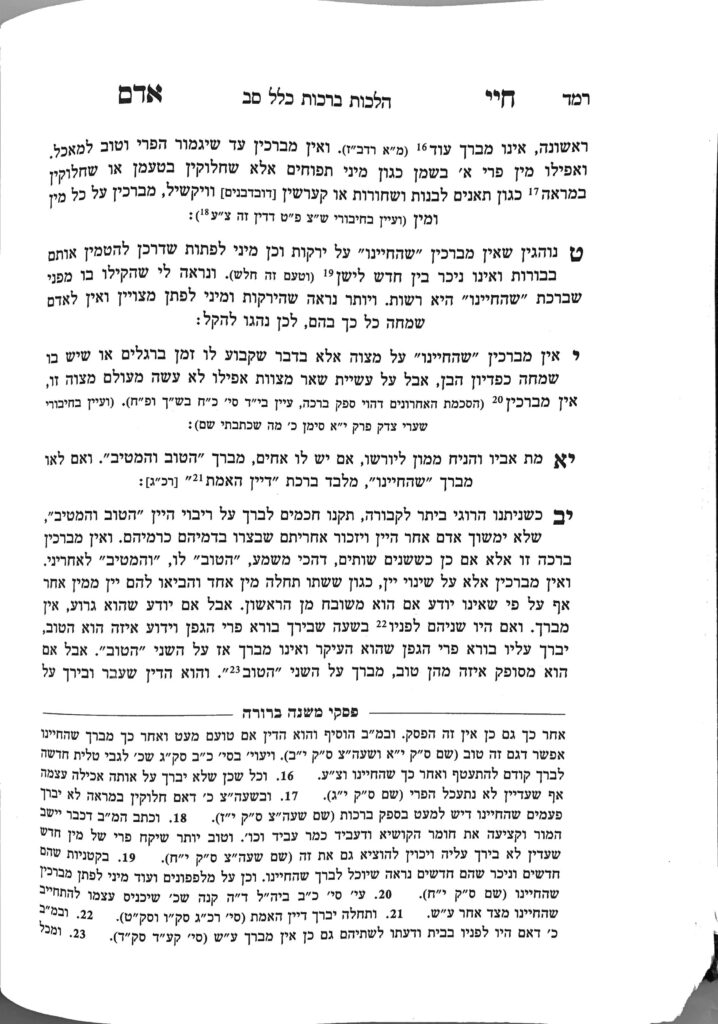We have finished siman 9. The Chayei Adam wrote that vegetables do not receive a shehecheyanu because they are stored from year to year. This idea would seem to approximate our reality nowadays, where we transcend the local seasons through refrigeration and other methods. Therefore, in a country where such methods are employed, it would seem that one should not make shehecheyanu on any fruits or vegetables.
However, the Mor U’ketzia writes that the reason stored item do not receive a shehecheyanu is because one cannot tell the difference in flavor between the new and old produce. However, if there is a difference in taste between the fruits and vegetables imported off-season and fruits and vegetables harvested locally during the season, one would still make shehecheyanu.
Rav Moshe Feinstein, ztl, has a teshuva where he writes that the fruits and vegetable which do not receive a shehecheyanu are only those which last through natural means from season to season. Hence items (eg. potatoes, carrots, etc) which can last by storing them in the ground is because Hashem made part of part of their original nature to last. Therefore they are considered items which are not cyclical. However, if mankind had to create artificial means with which to preserve these items off-season, it is still considered as having a cyclical element, and would receive a shehecheyanu. However, at the end of the teshuva, he mentions the opinion of the Mor U’ketzia, and concludes that if one cannot identify the difference in flavor, it is a safeik, and one should refrain from reciting a shehecheyanu. The Be’er Moshe concurs with Rav Moshe.
Practically, we learned that the bracha of shehecheyanu is a reshus (see shiur 1201). Therefore, if one does not feel simcha from the new fruit or vegetable, they certainly do not say the bracha. If they do feel the simcha, they may recite the bracha, but only in situations in which both of the criteria mentioned are met; that is, the item cannot be naturally preserved from year to year, and one can discern between the seasonal and off-season versions of the item.
It is important to point out that an item available the entire year which a person has not eaten in a long time does not receive a shehecheyanu, as the shehecheyanu is made as a result of the fruit’s cyclical element, not the person’s. Therefore, when buying a new fruit for Rosh Hashana, it is not enough that a person has not eaten the fruit before, or has not eaten it in a long time.
Summary
- Fruits and vegetables which grow in cyclical seasons theoretically receive a shehecheyanu.
- One refrains from reciting shehecheyanu if one has no simcha whatsoever from the new item.
- Fruits and vegetables which are preserved from year to year still receive a shehecheyanu, provided:
- One can discern between the seasonal and off-season versions of the item;
- The item cannot be naturally preserved from year to year, but only due to modern advances.



